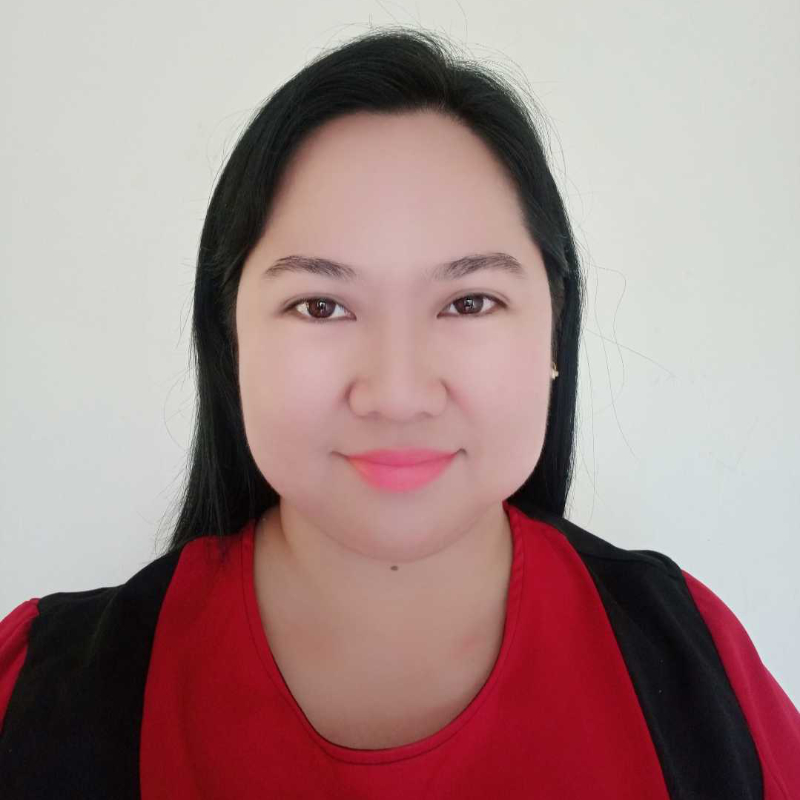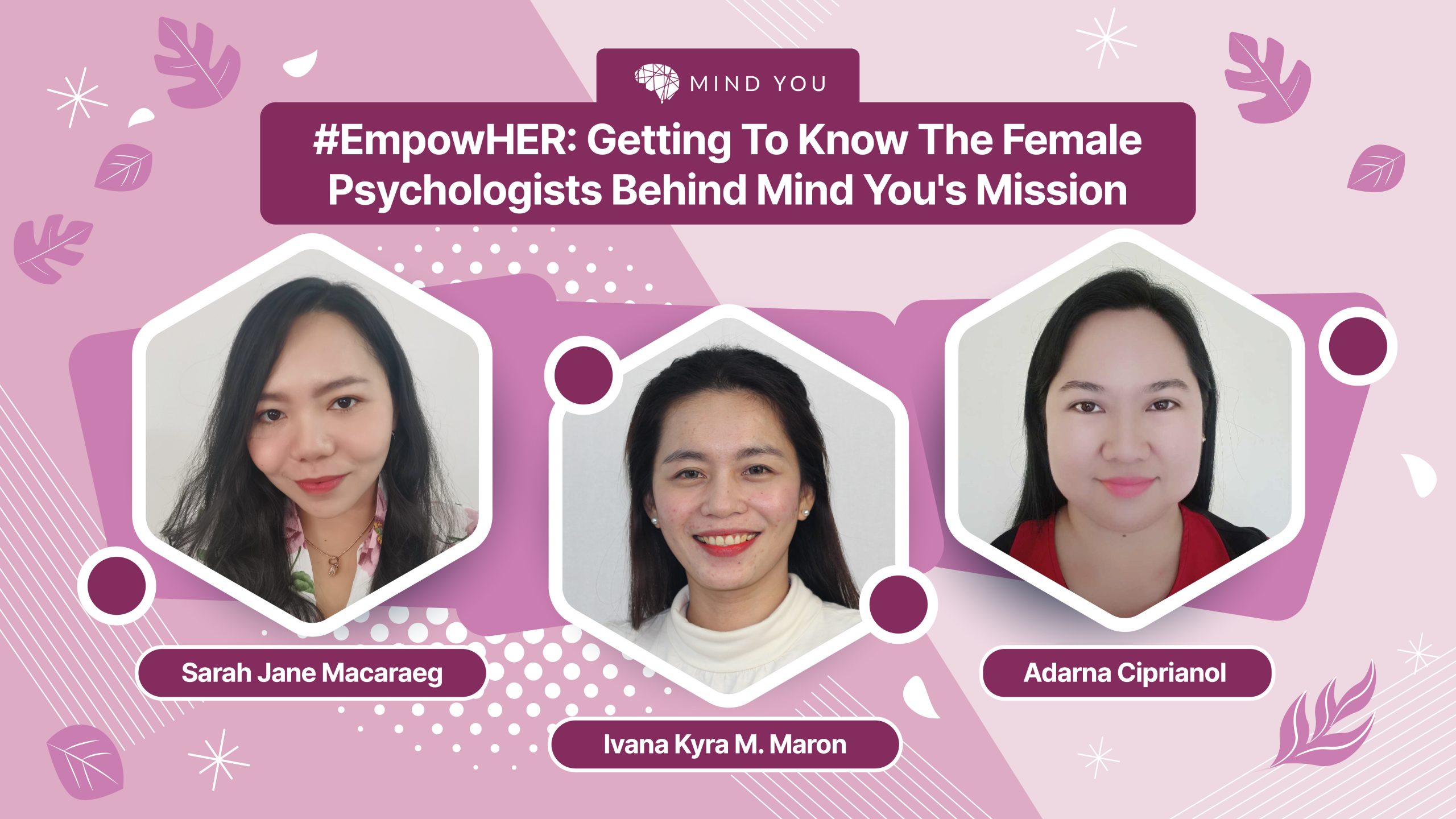Studies from the World Health Organization (WHO) show that there is “an approximate ratio of 1 psychologist to 80,000 Filipinos”, which falls far below the recommended ratio. With these numbers, having a profession that is highly undervalued in a country that has a long-held stigma against mental health makes the job even more difficult.
The judgment that is attached to speaking to a psychologist results in two unfavorable outcomes: firstly, the stigma is further exacerbated, and secondly, an individual’s mental health challenges remain unaddressed. When we factor in the effects of the pandemic on one’s mental health, it is of utmost importance that we continue to make proactive efforts to end the stigma and connect people with the right resources.
In honour of National Women’s Month, we sat down with three of our female psychologists to share their personal experiences as psychologists, their outlook on the mental health landscape of the Philippines, and the importance of individuals recognising their mental health wellbeing and needs.
Sarah Jane Macaraeg has been a registered psychologist for 3 years. She graduated with a Master of Arts in Clinical Psychology from University of Santo Tomas. Before joining Mind You, she was a Clinical Psychologist for St. Arnold Center for Integral Development and a program head at La Consolacion College, where she taught various psychology subjects to students. In her spare time she enjoys reading, watching movies and working out.


Ivana Kyra M. Maron is a human rights advocate who graduated with a masteral degree at the Pamantasan ng Lungsod ng Maynila. As a practicing psychologist she spends her time in various clinics and teaches at multiple universities like San Beda College, Alabang; St. Scholasticas’ College, Manila; and University of Makati.
Adarna Cipriano is a licensed and registered guidance counselor and psychologist who has had experience working in a multicultural country, specifically in the United Arab Emirates. She has had over 20 years of experience in the field of counseling and psychology. Her exposure to clinical, industrial and school settings has made her a well-rounded person emotionally, mentally and professionally.

What led you to become a psychologist?

Sarah
I was encouraged by my mother when I was still picking my major in college. She told me that I’m good at talking to people and giving advice.

Vana
It wasn’t exactly my first choice in the beginning. During my undergraduate, there was no licensure exam yet in the Philippines to become a medical doctor, so I decided to pursue an MA in Clinical Psychology because I enjoyed psychology while gaining my bachelor’s degree. The factor that further encouraged me to pursue this career was that I really wanted to help the community, the people and all the underprivileged.

Adarna
Becoming a psychologist wasn’t a dream of mine. I originally wanted to become a medical doctor but I was not able to proceed due to financial limitations. During my second year in college, I started to question the whys and hows of life. My brother had a nervous breakdown at that time and I wanted to understand what he was suffering from emotionally and that’s how my interest in Psychology began.
Are people hesitant to share their struggles with you during sessions because you’re a woman psychologist?

Sarah
Not really, Some are actually more comfortable talking to a female psychologist because of the “nurturing” quality of women.

Vana
There are [very] few times that people are hesitant to share their circumstances, especially if it is a male client.

Adarna
Not at all. I think clients tend to open up more with female psychologists. They feel that they will be able to relate well and be understood more.
What do you enjoy most about being a psychologist?

Sarah
I enjoy how I can be with people throughout their journey in the therapeutic process. I’m not the one making the change, I’m just there to help them navigate through their experiences and teach them some tools to help them out in the future.

Vana
I love what I’m doing, I am also interested in hearing other people’s stories when no one else can. As a therapist, we give them a safe and open space for them to share, express, and tell their stories without any hesitation. I am also in awe of how these people have the courage to open up their lives, even if we are strangers.

Adarna
Meeting different people and hearing different stories challenge me to broaden my horizons as to where they are coming from. It helps me sharpen my counseling skills even more.
Is there a perception you wish the public can change about psychologists?

Sarah
Most people think they can only talk to a psychologist when they feel really depressed or anxious, or when they think they’re “crazy.” However, I want the public to change the perspective that sometimes you just need a “mental health check up” similar to a physical examination. Our brain is an organ too, and sometimes it can get sick. A person needs someone to listen to them objectively without judgment in the way, and not everyone has a good support system that validates their emotions and thoughts. Sometimes a person needs professional help for that. Additionally, psychologists can help them with low self-esteem, regulating emotions, tolerating stressful situations, and the like.

Vana
One of the misconceptions in our profession is that it’s for the “burgis lang” (local/kalye term for -bourgeois-). Well, I can’t blame them because the consultation fee is really expensive and mostly they can’t afford it. Public services and resources are also very few. With that, I hope soon enough the government can consider putting psychological help or services in local barangays.

Adarna
Yes. I wish the negative perception would be changed that once you consult a psychologist, you're a neurotic or psychotic already.
Who would you say is your female role model? Why?

Sarah
In the field of psychology, one person sticks out the most to me, and that is Marsha Linehan. She struggled with her own issues in life but that didn’t limit her to pursue the field of psychology. She developed a psychotherapy called Dialectic Behavior Therapy, which is widely used and researched as a therapeutic technique for various mental health disorders.

Vana
Actually, I look up to so many women, and my mom is one of them. Being a single mother raising six kids alone is no joke. She fulfilled the roles of being a mom and being a father, while working hard to send us all to school and letting us finish our college degrees.

Adarna
I look up to the late Miriam Defensor Santiago. Her boldness and courage to speak the truth and advocate for what is right inspires me. Our country needs more women like her.
What do you think the country needs to improve on with regards to mental health?

Sarah
The implementation of the Mental Health Law is the number one thing we need to improve on. Psychological services should be easily accessible to the public. If possible, we need to make it more affordable as well. More professionals in the field are needed too.

Vana
There are so many things that our country needs to improve, like facilities, resources, wages for the MH professionals, wider awareness and education about it, budget, implementation of the law (because we have it already), making it available to the underprivileged, especially to the rural areas and indegenous people, and a lot more.

Adarna
The government should strictly require private companies and public institutions to incorporate the provision of mental health services to its people. While others have started to do it, quite a majority is still lagging in this respect.
What do you think hinders Filipinos from engaging in availing mental health services?

Sarah
The stigma is still there, particularly with the older generation. Moreover, it’s expensive for them to avail the services.

Vana
There are still many Filipinos who are either not aware about or not knowledgeable enough about mental health. They would count it as “normal lang naman”. It can be, yes, but there are some things that need to be monitored, consulted, and/or intervened right away. Then, we have the lack of resources. Unfortunately, our country is not investing enough in the health system (just look at the nurses, doctors, PT, Radtech, etc.. Normally, they go abroad to earn more. How much more for the MH professionals?

Adarna
First is the financial constraint. If mental health is not included in a company’s HMO, consultation is costly. Second, there is the stigma of getting a consultation about mental illness. Third, Filipinos are naturally emotionally resilient, therefore, they tend to carry on with themselves whatever difficulty they are going through. They care less about their mental health unlike they care for their physical health.
What benefits do you think Filipinos will have from talking to a psychologist?

Sarah
Filipinos are one of the most emotional people in the world. it’s not enough to just talk to our immediate support system. Sometimes talking to someone with an outside perspective is beneficial. A psychologist will definitely help with that.

Vana
There is no such thing as holistic health without mental health. Anything that we are thinking, feeling, and doing are all connected to our mental health. So basically, everything that we do is targeting our mental health.

Adarna
Psychologists can help people learn to cope with stressful situations, overcome addictions, manage chronic illnesses, sort out their concerns and empower them to make wise decisions.
What is it like being a female psychologist?

Sarah
It is difficult to be a psychologist in general. But, for female psychologists, people expect us to be “okay” all the time when we’re also struggling with hormones, societal expectations, like having family or career expectations, and emotional distress because of our life experiences. It creates a certain pressure for us. Nevertheless, I have wonderful female colleagues that give me support and encouragement. Also, as a female psychologist, it is easier to relate to the difficulties of other women and understand where they are coming from.

Vana
This is something I’m always proud of. It helped me to see myself as a woman with substance and purpose, because I was able to help the people around me, and of course, our community. Through the years, women were not given a lot of opportunities, but this time, more women psychologists are taking strides to serve the community, and help others sexes and genders feel empowered by being who they are without judgment and hesitation, such as making our male patients feel vulnerable and emotional or by just letting them share their problems in life; whereas letting the woman be brave and courageous enough to stand on their own feet, especially those who are battered and underprivileged, helping them to stand up again, and make a choice of their own. As a psychologist, I believe in practicing what you preach and walking the talk to make a difference.

Adarna
Well, it’s very challenging, especially with male clients. There are a few potential complications that can come up. One concern is transference, a common phenomenon in which a patient projects feelings about another person (his mother, spouse, or ex-partner) onto his psychologist. Projecting them onto his female psychologist can get in the way.
What message of empowerment do you hope to share with the women of today?

Sarah
Don’t be afraid to take up space. You can be whatever you want to be in life. We have that freedom now. You can be an independent career woman or a homemaker or both. You have choices now, it’s okay to choose what you think is best for you.

Vana
When you want a change, improvement, and development of yourself, do it because it’s you, not because of what other people tell you to do, not because of the pressures you put into, not because of the comparisons you live through, and not because you need to please society's demands just to fit in. Choose wisely, choose yourself.

Adarna
Gender equality is more recognized nowadays. So every woman should not be afraid to be heard, to speak the truth, to share her knowledge with the world, and stand out from the crowd. Every woman should keep on empowering herself by knowing what she wants to achieve and climb the ladder of success for herself and by herself.





